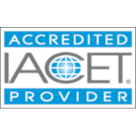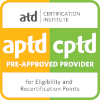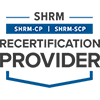Certificate Suite Details
Key Features
- Mobile-friendly
- Badge and credit-awarding
- Real-world case studies
- Fully accessible
- Games & Flashcards
- Expert-supported
- Video content
Certificate Preview
Certificate Description
Courses Included in this Certificate
Course Description
This course covers the activities associated with public communication in the nonprofit sector. You will gain an understanding of how to develop an effective communications plan. We will also explore best practices for crafting messages that reach diverse audiences, and look at the many different channels for public communication, like social media, press releases, websites, and print media. You will learn how marketing principles like branding, storytelling, and targeted messaging can be applied in the nonprofit context. This course also explains concepts related to advocacy and lobbying and explains how transparency is maintained through public communication.
Course Credits
Course Description
This course, aimed at nonprofit leaders and aspiring leaders, is designed to help them become more effective communicators. Self-paced and highly interactive, the course covers basic communication theory: the four main communication styles, the different communication channels, and the difference between push communication and pull communication. It focuses on practical approaches to workplace communication: developing a clear message and tailoring it to your audience, adapting your communication style for different demographic groups, developing a communications plan for your organization, and communicating in times of crisis. It includes three case studies that allow learners to apply what they have learned to real-world situations, and it allows learners to download materials that they can use to hone their communication skills.
Course Credits
Course Description
In a nonprofit, effective communication is key to ensuring that everyone is aligned around a shared mission and vision. Leaders need to set clear expectations, keep staff motivated and engaged, and communicate effectively through times of crisis and change. An organizational culture of supportive and open communication among all employees is crucial. This course will explore some popular approaches to communication in the nonprofit environment. You will learn methods for communicating effectively with staff, supporting their communication with one another and ways to adapt your approach for different audiences.
Course Credits
Course Description
In nonprofit leadership, communication is key. This course identifies the particular challenges involved in communication between leaders at a nonprofit and their board of directors and demonstrates how learners can work around them. Among three case studies and numerous video responses from experts, this course focuses on three main topics: identifying healthy vs. unhealthy communication, preparing for presentations and delivering information, and communicating in difficult times. Learners will learn to tailor information and communication for a board audience; after completing the course, they will understand what healthy communication looks like and will be able to identify and diagnose the most prevalent communication struggles in nonprofit leadership.
Course Credits
Course Description
This course provides nonprofit leaders with the necessary skills to communicate effectively with their volunteers. You will learn about the volunteer life cycle, along with the different types of communication that are involved at each stage. We will also discuss methods for recruiting volunteers and learn how to adapt these methods for different audiences. You will learn how to develop volunteer policies and share them with your team. We will also explore ways to provide orientation and feedback and discuss how to keep volunteers engaged and motivated. And you will learn how leaders can express appreciation to their volunteers and sustain these valuable relationships over time.
Course Credits
Notes
This course has an "Ask the Expert" feature, which submits your questions directly to an expert in the field you are studying. Questions are answered as quickly as possible and usually within 24 hours.
As an Accredited Provider, MindEdge offers for its learning events that comply with the Continuing Education and Training Standard.
Learners must achieve an average test score of at least 70% to meet the minimum successful completion requirement and qualify to receive credit. Learners will have three attempts at all graded assessments.




